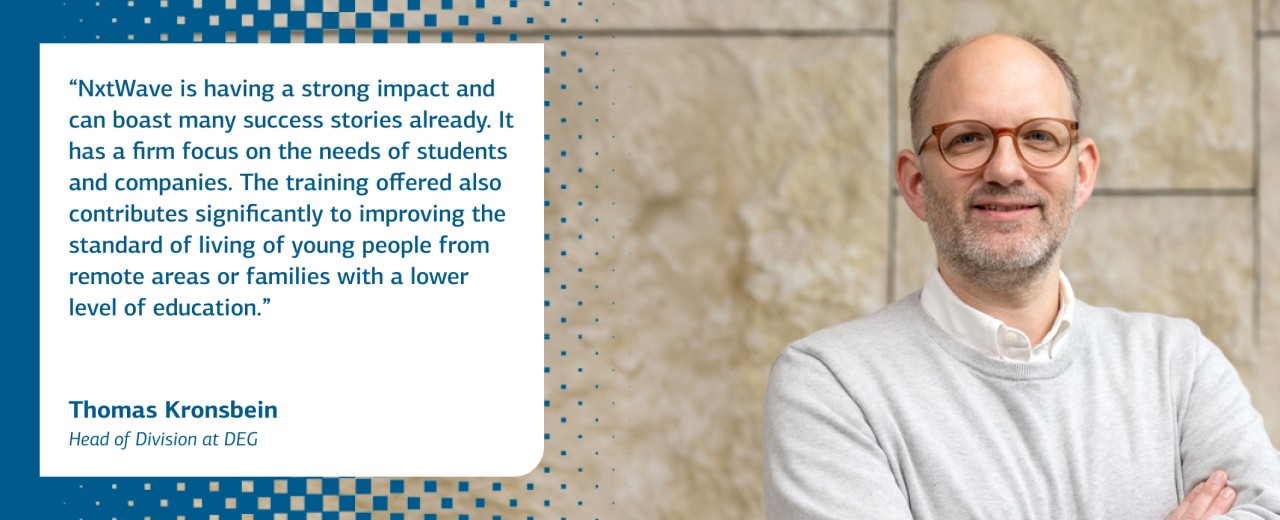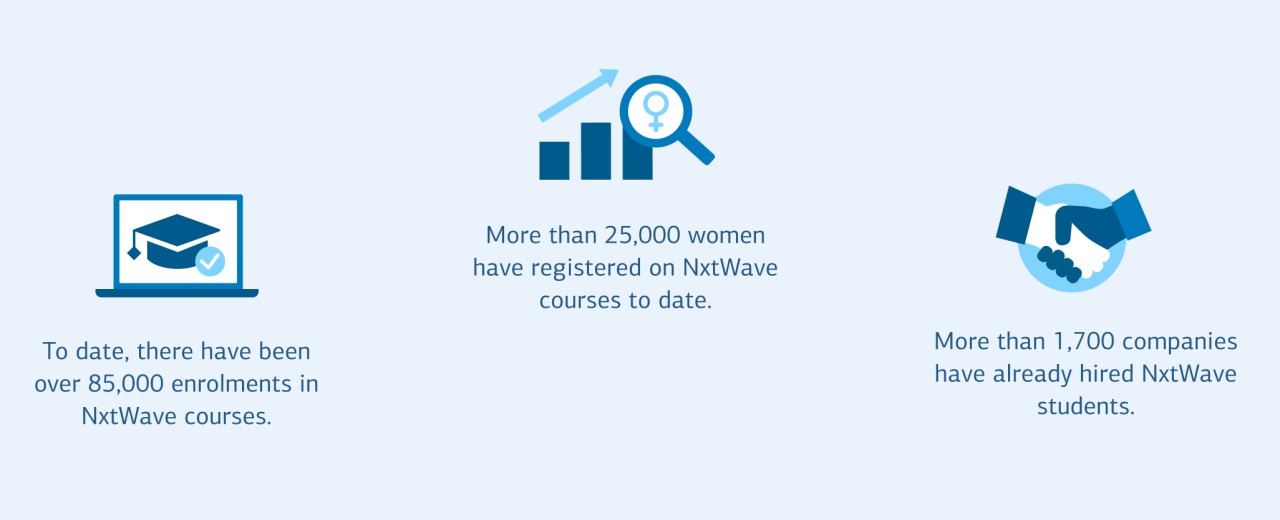Many young people who come from rural areas of India are often unable to find work in future-oriented professions in the IT industry. The reason: a lack of practical programming knowledge despite having an academic education. NxtWave, an Indian company, is committed to tackling this problem by offering training courses and placement services.
After China, India has the second-largest education system in the world. However, there are clear areas for improvement, particularly when it comes to government institutions: “The quality of and access to public education institutions is often below average in India,” explains Thomas Kronsbein, Head of Division at DEG – Deutsche Investitions- und Entwicklungsgesellschaft mbh. In view of this situation, KfW Group’s subsidiary is participating in the online training platform NxtWave. Founded in 2020, the EdTech company provides digital learning content helping to improve job opportunities for young Indians.
Up to 75 per cent of IT students find it difficult to enter the Indian labour market because they lack basic skills that are applicable in the workplace. This is where the company's services come into play. The EdTech platform offers further training opportunities via a digital channel that are designed to build on the graduates' studies. The subject matter covers practical knowledge and focuses on skills currently in demand in the IT sector. “As digital infrastructure in India is very well developed, we can also reach young people in remote areas of the country,” explains Rahul Attuluri, co-founder and CEO of NxtWave.

To be able to convey the right training content to the right audience and increase a user's chances on the job market, NxtWave offers its courses in English as well as a variety of local languages and dialects indigenous to India. “This gives less privileged students in particular access to the content, the market and ultimately a sustainable income,” says Thomas Kronsbein.
These high development policy factors and the strong economic development convinced DEG to invest in NxtWave. “The company is economically successful and makes a contribution to improving the standard of living of young people in India. This impact is crucial for us,” says Kronsbein. DEG provided NxtWave with equity capital of USD 8 million. The funds will be used for the ongoing development of platform technologies and content for e-upskilling and e-learning courses as well as to recruit more sales staff.


The impact of NxtWave can be demonstrated through individual success stories. One impressive example is the story of Shobha Katuru, a young Indian who comes from a small, remote village in the state of Andhra Pradesh in the southern coastal region of India. NxtWave gave her the opportunity to become a qualified professional and take online courses from home. And it is proving successful. She is the first woman from her village to complete her studies and get an IT job. Shobha’s career has led to more and more young women in the area recognising the need to stand up for themselves and take their future into their own hands. She says: For many girls in our villages, education is the only way out."
Over the next two years, NxtWave plans to engage more than 10,000 companies in total, creating an array of future opportunities for students. “The aim is to consolidate our leading position in the existing markets. In addition, we want to offer training in a wider range of Indian languages in the future so we can reach even more students,” says Rahul Attuluri. This expansion is an important step for inclusion and ensures that high-quality education is accessible to a wider population. “This underlines our commitment to help shape the future of education in India,” says Attuluri in summing up.
Share page
To share the content of this page with your network, click on one of the icons below.
Note on data protection: When you share content, your personal data is transferred to the selected network.
Data protection
Alternatively, you can also copy the short link: https://www.kfw.de/s/ennBzBPX
Copy link Link copied